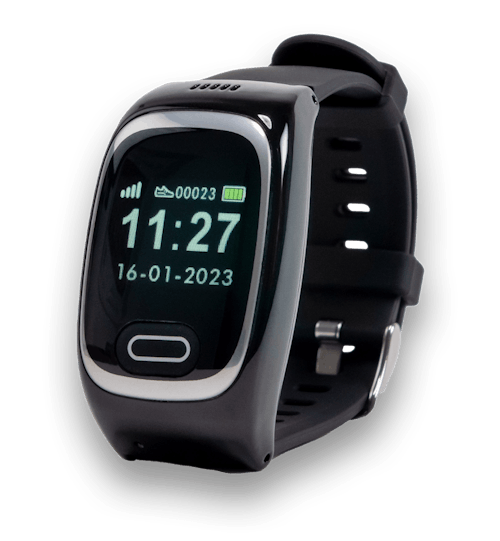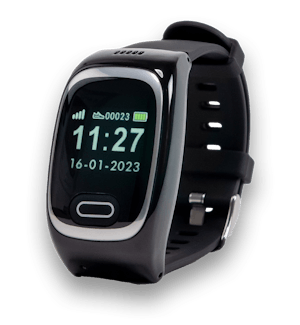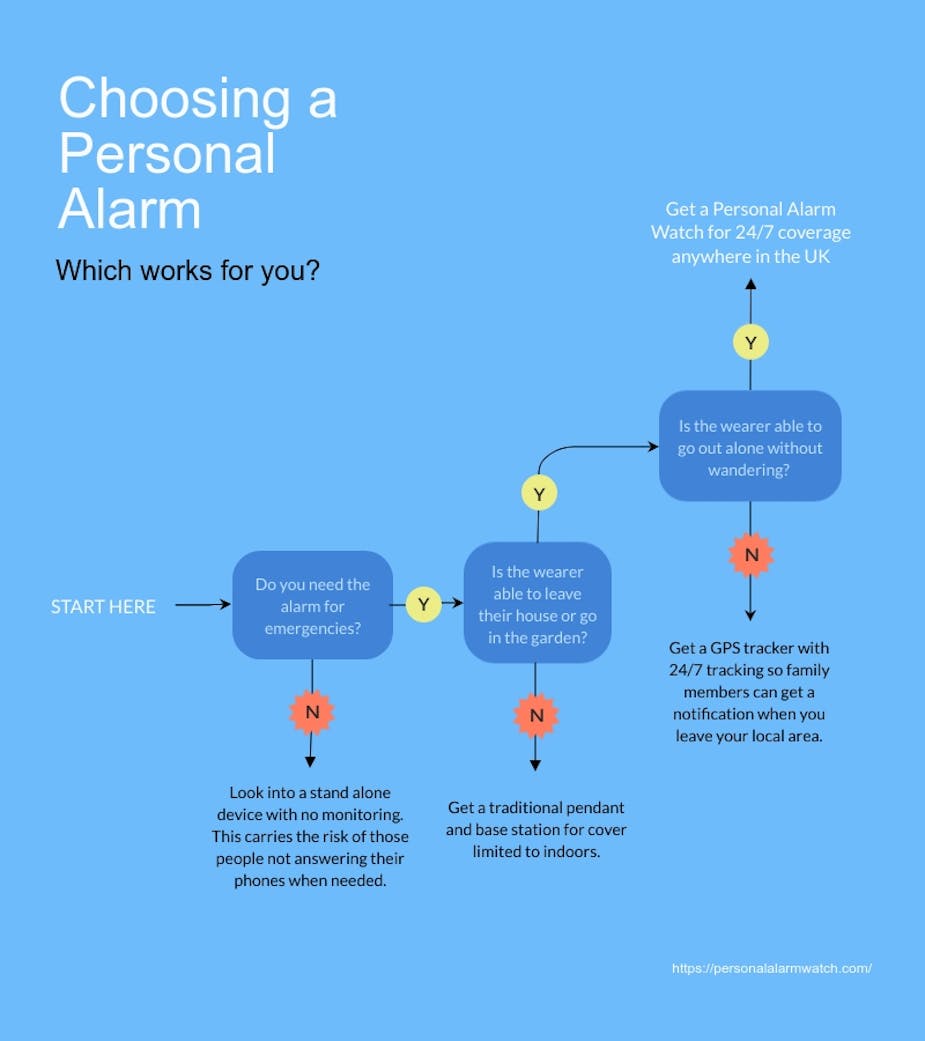Checklist for choosing the best personal alarm service
Does the personal alarm service connect to a 24/7 monitoring team?
It’s important to ensure that your emergency alarm calls are being connected to a 24/7, 365 monitoring centre. A monitoring centre trains and employs staff specifically to deal with emergency situations, and are a must have for adequate peace of mind. Some personal alarms instead connect to a family member, friend or other selected contact, and whilst this can cut costs, the call may not be answered quickly in an emergency; and as we all know, time is often of the essence during such situations. Even worse, the call may not be answered at all depending on other factors. That’s why we consider it an absolute essential that your personal alarm connects to an experienced and suitably qualified monitoring service. And that brings us onto the next item in our checklist.
Is the monitoring team adequately qualified?
It’s extremely important to consider the expertise and experience that an emergency monitoring centre will have in dealing with these calls. How many calls do they get a month? What is their average response time? You should be able to get this information directly from the monitoring centre or the personal alarm provider. If they don’t have this information at hand, it’s probably best to look elsewhere.
Are they based in the UK?
Ensure that the personal alarm monitoring team is based in the UK. There’s little explanation needed for this one, but it’s a highly important step that is often overlooked. If possible, check if you can call up the provider for advice over the phone during business hours. This will not only allow you to confirm where they are based, it will also make your experience much easier and can prove to be a good indicator to how they treat their customers. The last thing you want is a personal alarm monitoring team that overlooks their customers, so it’s important to spend some time getting this step right.
Are they TSA accredited?
Ask whether the call centre holds full accreditation by the TSA (TEC Services Association). This is the industry body for technology enabled care in the United Kingdom. The TSA currently represents hundreds of organisations who must adhere to their code of practice. This code ensures that accredited organisations provide excellent customer care, deliver a compliant service, and always act with the customer’s interests at heart. We are extremely proud to partner with a 24/7 team that is accredited to the highest standards by the TSA.
Check their reviews
Make sure to check the company’s profile and reviews on TrustPilot. Trustpilot verifies all customer reviews so you can check the quality of the service and place trust in the information. We’re proud to say that YourStride is the highest rated personal alarm service on Trustpilot, and have been for a number of years now. Try and read a number of reviews before coming to your decision, as you’ll often find customers in similar situations to your own, and this kind of information is often a lot more valuable than a list of features or other stuff you’re likely to find on a personal alarm brochure or website.
So, with the checklist out of the way, your choices should now be filtered considerably. That means it’s now time to look at the other factors for choosing which personal alarm is right for you.
Choosing a personal alarm
There are many factors in choosing the best personal alarm for you. Ultimately, it will come down to your individual taste and situation, and as these can vary considerably from person to person there’s unfortunately no one-size-fits-all option (though at YourStride, we like to think that our personal alarm is pretty close to achieving that goal!).
Given how much personal alarms can vary, make sure that there is a simple way to try out the personal alarm and then return it if it is not for you. There may be the odd quirk or grievance with your personal alarm that you did not anticipate, so a return option is absolutely essential. This is particularly true if the personal alarm requires a costly monthly service cost, and in this case you should ensure that you can cancel the service at any time without being charged a penalty fee.
To help you choose the best personal alarm, we’ve detailed some factors below that you may wish to take into consideration:
Design
Would you prefer a more modern, discreet type of personal alarm or the traditional, large red button? Beyond aesthetics, you should also consider how the alarm is worn. Do you want a necklace (pendant) alarm, one worn on the wrist, or some other type?
When it comes to wearing your personal alarm, you should consider both the pros and cons of having a wrist worn device versus a pendant alarm (or other type). Often, an around the neck pendant gets twisted in your clothes and can become unwieldy. And when it comes to wrist worn personal alarm devices, you should double check that the SOS button is raised so that it can be used one handed.
Beyond that, there’s other personal alarm design choices such as the size, colour, and weight of the device. Some will prefer a more discreet option, whilst others prefer a sturdier and more obvious alternative. Though primarily cosmetic in nature, these choices can have a significant impact if it means that the wearer is more comfortable with their alarm and therefore likelier to use it.
Range - Should you get a personal alarm that is linked to a mobile network?
If you want a personal alarm that can make emergency calls whilst you’re in the garden, at the shop, or just out and about then an unlimited range device would be your best choice. These personal alarms will work anywhere you go in the UK by connecting to a mobile network.
If you do decide to go for these alarms then make sure that it can use all the networks in the UK. This will give your personal alarm network coverage across 97% of the UK's roads or 90% of all indoor locations (Ofcom 2017). If the personal alarm instead only connects to a particular network, then you run the risk of finding yourself in a network blackspot more regularly.
Another benefit of a personal alarm that is linked to a mobile network is the easy set-up. There’s no installation required, and as everything is pre-configured before the alarm arrives you can simply put it on and start using it.
Despite the obvious benefits of a personal alarm that is linked to a mobile network, a static alarm that only works in the home may be preferable for those who are housebound. These static personal alarms will typically have a longer battery life as they don’t need to worry about connecting to a mobile network. These personal alarm devices use the landline and need the box with the speaker and microphone installed in a room in the house. Due to this, communication can at times be an issue and the monitoring team may struggle to hear the user depending on their location in relation to the talk-box.
Despite the obvious benefits of a personal alarm that is linked to a mobile network, a static alarm that only works in the home may be preferable for those who are housebound. These static personal alarms will typically have a longer battery life as they don’t need to worry about connecting to a mobile network. These personal alarm devices use the landline and need the box with the speaker and microphone installed in a room in the house. Due to this, communication can at times be an issue and the monitoring team may struggle to hear the user depending on their location in relation to the talk-box.
Traditional pendant alarms will be obsolete within 5 years
Traditional pendant alarms will be obsolete within 5 years. This is the secret traditional alarm providers don’t want you to know.
In 2017, BT announced that they would be switching off the network that all our home phones work on. This will be replaced with digital equipment. This is just like when our televisions became digital a few years ago. The same is going to happen to all the phone lines. This means old phones and alarms will stop working.
This is a big problem for the care sector as all traditional alarms can only work through the old phone lines. Your old style alarms will stop working. This will happen before the end of 2025.
Traditional providers are struggling with this change. For the most part, they are not offering compatible devices right now.
Careline alarms are already failing
Error rates for traditional careline alarms are climbing fast. Councils and traditional providers are struggling to work out when their alarms will fail completely. Research from the TSA (Telecare Services Association) has found a 7.5% first-time call failure rate for traditional alarms. There are reports of this exceeding 11% in some areas. This means your emergency call will not connect correctly for one in 10 people.
Phil Cain (Senior Product Manager BT) - “Ultimately, the message from BT is that users would benefit from having a tried and tested product to use on the new network.”
The guidance from BT is to switch to devices that are built for this new network or are based on mobile networks like a YourStride personal alarm watch. The watch does not need to be plugged into any sort of landline so it will work as normal now and into the future. It will not suffer from the errors that all of the landline alarms are currently experiencing. It is the safest choice.few years as the phone network upgrades. If you’re in the market for a personal alarm today, we would recommend a device that is linked to a mobile network.
Cost
Most personal alarm services will have an upfront fee of £50 - £150 and then a monitoring fee of circa £20 per month. Of course, this will depend on the type of service you choose and the type of device. For example, the YourStride personal alarm watch costs £59.99 to set up and then just £17.99 per month. Other personal alarms, particularly those that require installation, can lead to more expensive up-front charges.
Also, as mentioned previously, remember to pay attention to warranty terms and any cancellation fees if applicable. YourStride offers a 30 day money back guarantee and there are no cancellation fees for the monthly service, but other providers may vary.
Should you get a personal alarms with GPS
Go-anywhere alarms usually offer GPS. This allows the monitoring team to get your location wherever you are. Some personal alarms will also offer 24/7 tracking so that if the wearer has dementia (or similar) their path can be attained. This will also allow a family member (or other trusted contact) to be alerted if the wearer leaves a pre-defined ‘safe’ area. This feature often reduces battery life but can be useful for specific specialist cases.
With GPS tracking, it’s understandable that some would have concerns in regards to their privacy. If you do not want 24/7 tracking you may want to ensure that your location is only sent to the team in an emergency.
Other features
Some alarms come with other features that may be useful for you. For instance, many YourStride personal alarm watch users love the step count and heart rate measurement features. They love the fact that they have a built-in fitbit on their personal alarm, and we’ve heard that this helps them remain active and independent.













